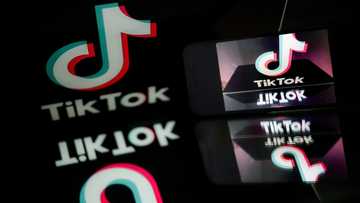Philips looks to AI as seeks to turn the page on defective respirators

Source: AFP
Medical device manufacturer Philips is betting on innovation as artificial intelligence (AI) transforms the healthcare industry, its chief executive told AFP in an interview on Tuesday, as the company looks to turn the page on a massive recall of defective sleep respirators.
The challenge facing healthcare systems is "how we take care of more patients in the future, with less staff, doctors, nurses and technicians", Roy Jakobs said.
Stretched hospitals and healthcare systems is a relatively widespread phenomenon around the world and technology can help provide solutions, said Jakobs, who took over the reins at the Dutch medical equipment manufacturer in 2022.
"For example, a nurse on average spends 20 minutes per hour on administrative tasks," he noted.
Meanwhile radiologists spend most of their time ruling out simple negative cases, and AI could help them "spend more time on complex cases where it needs all their time and effort to actually make the right and accurate diagnosis".
Jakobs said AI is not new and is already being used.
"But the next generation AI has much more powerful application methods," he said.
The increasing use of technology is creating reams of sensitive and valuable health data, which has created concerns about protecting and keeping it within national boundaries when it is stored in the cloud.
Defective sleep respirators
Philips has a development partnership with Amazon Web Services, but Jakobs said the company is agnostic about cloud storage.
"So we work with any cloud provider," he said. "And in China, it's Chinese cloud providers. In Europe, sometime it's local providers, or it's on the big tech."
Jakobs said health data should be looked at as a "massive opportunity" for both patients and efficiency.
"Because the more we know about patients... the better we can treat the patient for a better outcome," he said.
Since 2021, Philips has been battling a series of crises over its DreamStation machines for sleep apnoea, a disorder in which breathing stops and starts during sleep.
Users were at risk of inhaling or swallowing pieces of toxic soundproofing foam that could cause irritation or headaches. The US Food and Drug Administration said this possibly posed health risks although the company later said independent tests showed it was "unlikely" to harm patients.
The crisis pushed Philips into more than $2 billion in losses in 2021 and 2022 after it recalled 15 million machines, but it has since reached agreements to compensate users in the United States and with regulators.
"That was a very important milestone for us because it gives clarity on the way forward," said Jakobs.
He also said that Philips was "in the final stretch" with recalls, for which he apologised again and said the company was in the process of resolving the situation.
PAY ATTENTION: Stay informed and follow us on Google News!
Source: AFP



